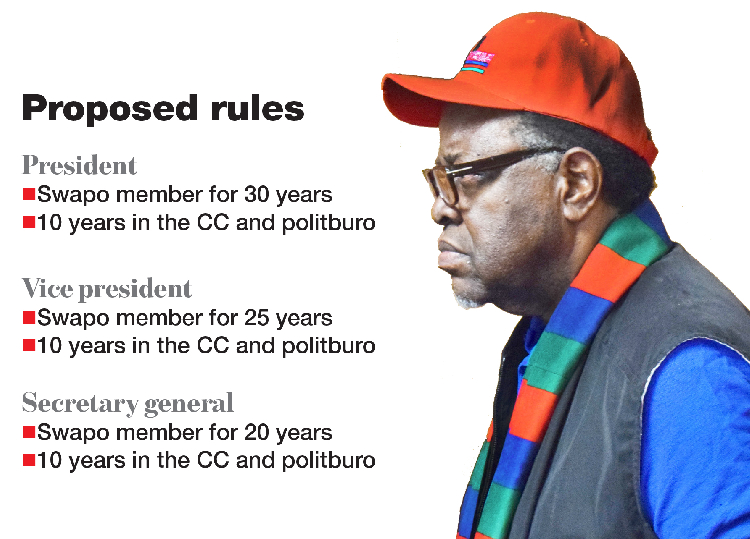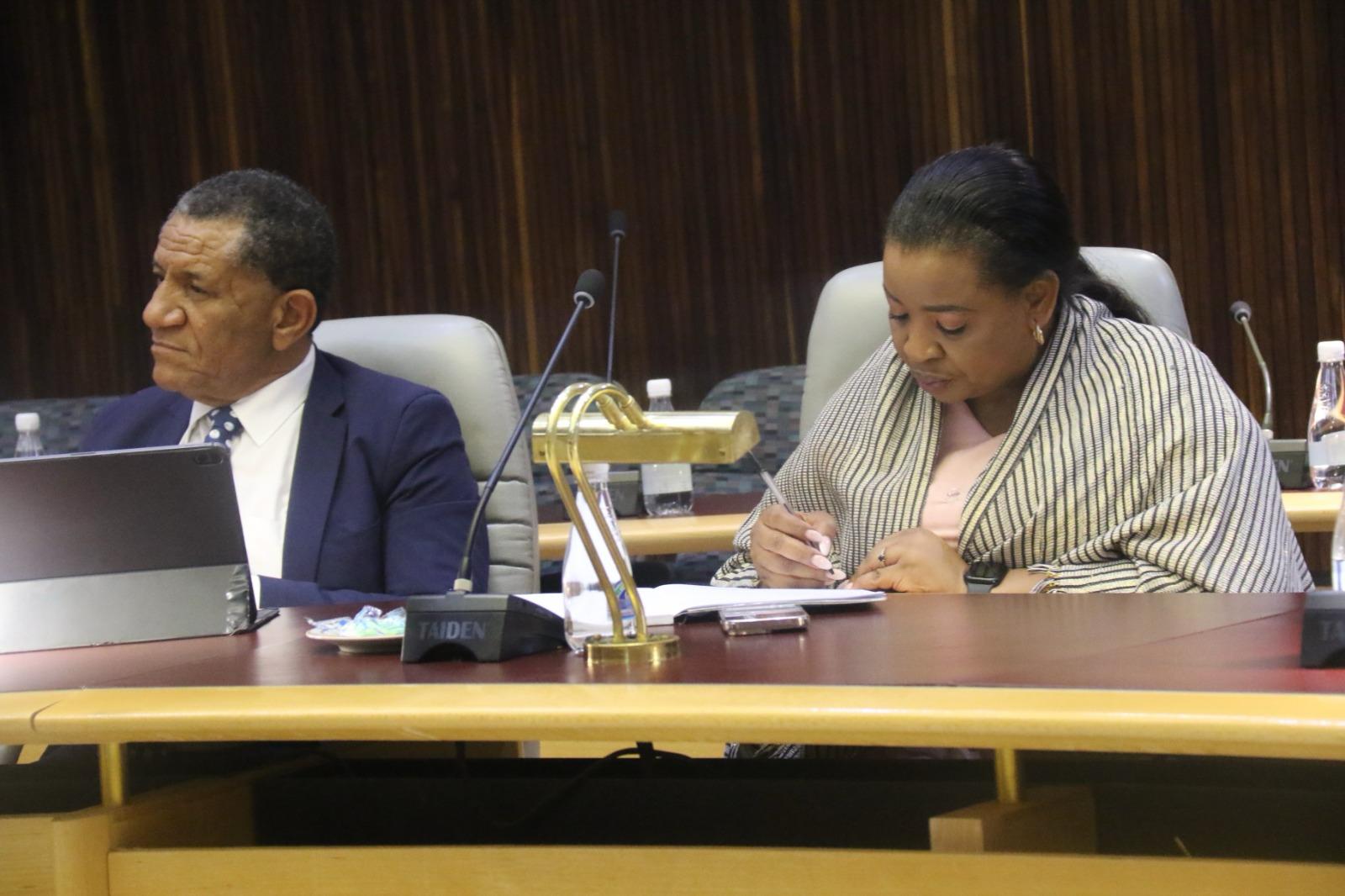THE proposed Swapo constitutional changes to fire party members who associate themselves with critical movements and other organisations have been described as “undemocratic” and a potential threat to freedom of association.
Party members are convening at Ramatex in Windhoek today for the start of a two-day Swapo extraordinary congress, where leaders are expected to amend the party’s constitution.
Swapo secretary general Sophia Shaningwa this week said the congress is about party constitutional amendments.
One of the new changes to the party’s constitution, seen by , is about party members and their association with social movements, other organisations and causes.
The draft document said membership is open to every Namibian who accepts the objectives of the party; who is 18 years old “and does not belong or support a movement, organisation or entity, regardless of whether such movement, organisation or entity is registered under the requirement of any law, whose aims and objectives are contrary to those of Swapo party as determined by the central committee”.
According to the document, the Swapo central committee would then decide to give the concerned member of the party an ultimatum: resign from the movement, or from Swapo.
“If such member refuses to resign from Swapo party within 23 days after being requested to do so, such refusal shall constitute misconduct, and disciplinary action shall be taken against such member, which might lead to expulsion,” the proposed amendment says.
This clause appears to target Swapo members who sympathise with organisations such as the Affirmative Repositioning movement, which is led by ruling party member Job Amupanda.
Amupanda, former Swapo Party Youth League secretary Elijah Ngurare, activist George Kambala and Dimbulukeni Nauyoma won a court case against Swapo in 2016 when a judge found that due process was not followed when the party’s top four leaders expelled them.
Amupanda told yesterday that Swapo is “legislating dictatorship”.
“They are legislating for people who are on their way to Heroes Acre,” he said.
According to him, movements play a critical role in helping organisations such as Swapo to correct their mistakes.
“It’s a foolish idea. The country is facing an economic crisis, but all they found was how to deal with social movements. Political parties should be crafting policies that will find solutions for the economic crisis,” he stated.
Amupanda believes that young people will create movements because they don’t like being regulated.
Human rights lawyer Norman Tjombe said the constitution of a political party which yields such a lot of influence, must stand up to scrutiny of the Namibian Constitution.
“The proposed changes are a violation of the right to freedom of association, which is guaranteed by the Namibian Constitution,” he added.
He said it is unfortunate that the proposed amendments appear to “be covering even ‘innocent’ membership to say the village’s local football club, or a debating organisation at a tertiary institution”.
“It will certainly make the Swapo Party an undemocratic organisation,” Tjombe stressed.
The clause of belonging to movements is emphasised in more than three sections of the proposed constitutional changes, including under the clause which focuses on “obligations and duties” of the party member.
Unless it is a requirement of the constitution, no member shall hold multiple positions in the structures of Swapo and in different districts, regions and at the national level at the same time.
The new constitution also added new terms on which a party member can leave the party, including voluntary resignation, expulsion, and “when a member belongs to or supports a movement or organisation or entity”. The proposed changes likewise gives the central committee – Swapo’s 84-member body – additional powers.
“The central committee shall have the power to recommend the suspension or expulsion by two-thirds majority of the president, the vice president, the secretary general and the deputy secretary general to the congress for serious misconduct or violation of the constitution,” the document said.
Human rights lawyer John Nakuta analysed the constitutional amendments on two fronts. One is that Swapo is a voluntary association.
“Like any other political party, it is free to associate with whoever it wants to. Here, it seemingly opted not to associate with persons belonging to organisations having contrary aims and objectives to those of the Swapo Party,” he said.
Nakuta added that these proposed amendments also raise concerns around freedom of association, which is guaranteed in the Namibian Constitution.
“Even Swapo members have the right to belong to an institution or a social movement or whatever organisation they want to belong to. The proposed constitutional amendments can be seen as an affront to the constitutional freedom of association,” he said.
REQUIREMENTS
The constitutional proposals also include a clause about 50/50 gender representation in the election of the party’s top four leaders during the elective congress.
“Only Namibians by birth or descent, who have been members of the Swapo Party for a continuous minimum period of 10 years, shall be eligible for membership of the central committee,” the draft constitution said.
Stay informed with The Namibian – your source for credible journalism. Get in-depth reporting and opinions for
only N$85 a month. Invest in journalism, invest in democracy –
Subscribe Now!










